Jotenji Temple: Visit This Traditional Zen Temple
Jotenji temple, originally founded in 1241, is a beautiful Zen temple located near a busy area of Hakata.
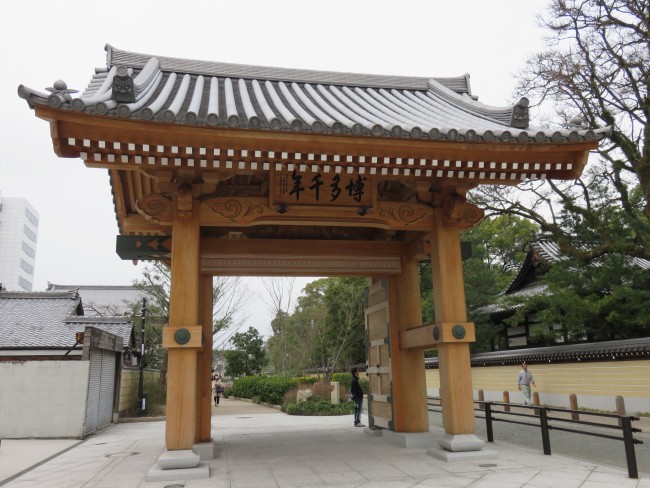
Escaping Hakata’s Crowded Streets
One of Fukuoka city’s most crowded areas, Hakata has the biggest station and business district. However, among all this stands a quiet Zen temple where you can enjoy some peace and tranquility while appreciating one of Fukuoka City’s traditional sights.
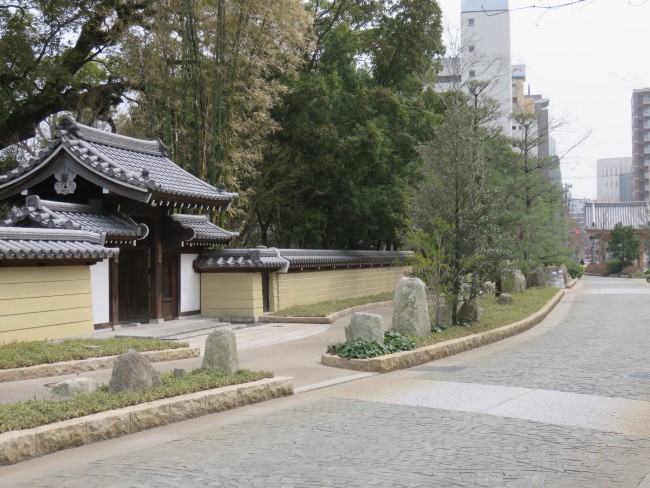
Step Back in Time: The Sights of Jotenji Temple
The Zen temple is preceded by Jotenji avenue, around a 10-minute walk from Hakata Station. One portion includes the Hakata Sennenmon – the Thousand Year Gate. This was built in 2014 and designed like the original gate into Hakata as seen in ancient documents. Made of wood, it stands at eight metres high and wide. Standing out against the backdrop of flats and offices, this gate marks the entrance to the beautiful avenue preceding Jotenji temple. The road is a symbol of hope for Hakata’s future prosperity.
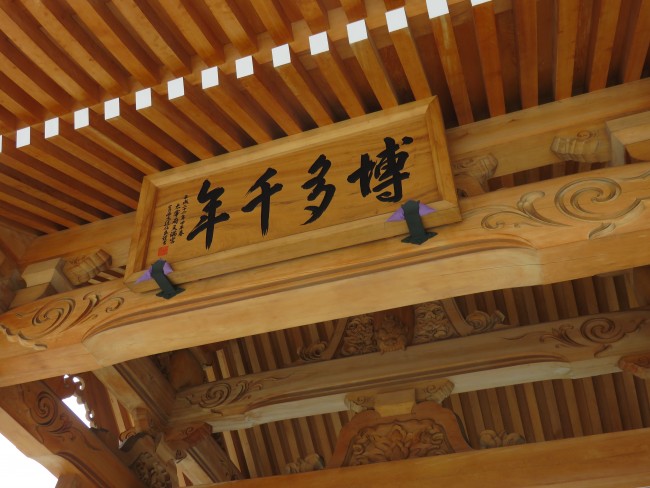
Coming from the nearby busier areas, turning into this avenue makes you feel like stepping back through time. Before you even enter the temple grounds, you can enjoy the traditional design of the avenue which has a completely different atmosphere contrasting the surrounding area.
The Jotenji temple grounds feature a Buddhist stone garden (or “Zen garden”). Not usually open to the public, this Zen garden can be seen from the opposite garden or avenue outside. The garden opposite has beautiful trees and water features. It is a lovely, serene spot for a walk around the traditional side of Fukuoka. The famous Hakata Gion Yamakasa festival is also said to have been founded here.
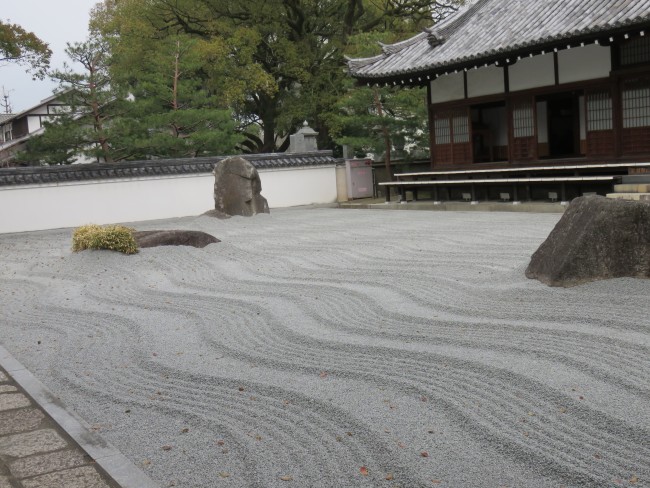
Another garden feature are the monuments to the introduction of some foods to Japan. The Jotenji temple founder, Enni-Ben’en, introduced some now very popular foods from China. These monuments commemorate the introduction of manju (dumplings), yokan (a sweet bean paste) along with the noodles udon and soba. The stone monuments are located at the left of the main garden’s entrance.
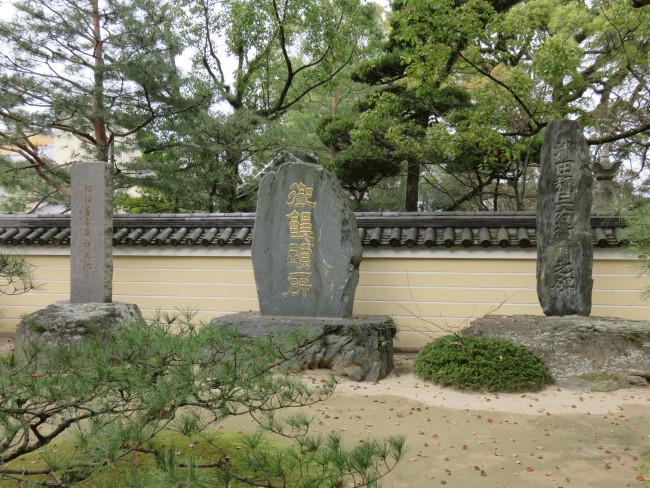
Events at Jotenji Temple
Around mid-November, Jotenji and other Fukuoka temples and shrines host a light-up event. For a few nights the Jotenji temple grounds, including the Zen garden, are beautifully lit. This event has been running since 2005, while in 2017 it was held from November 1-5. Tickets cost 1,000 yen if purchased beforehand (they can be bought at tourist information centers) or 1,500 yen on the day.
To experience a part of Fukuoka history and tradition, stop by Jotenji temple and enjoy a peaceful walk around the gardens! This peaceful Zen temple is only a five-minute walk from Gion Station.
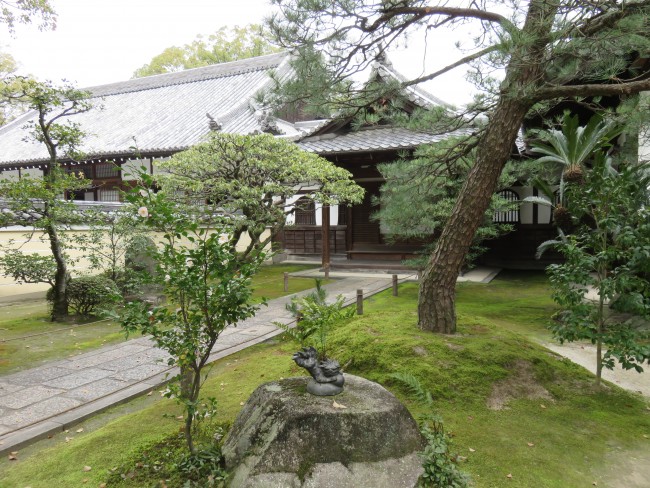
[cft format=0]
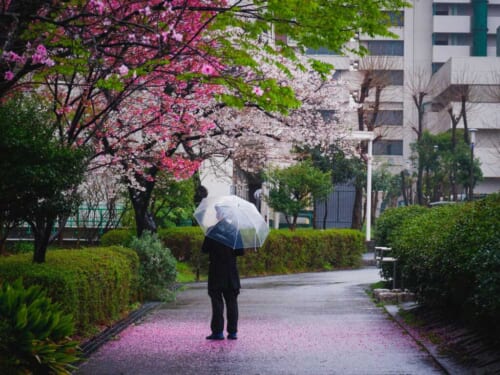
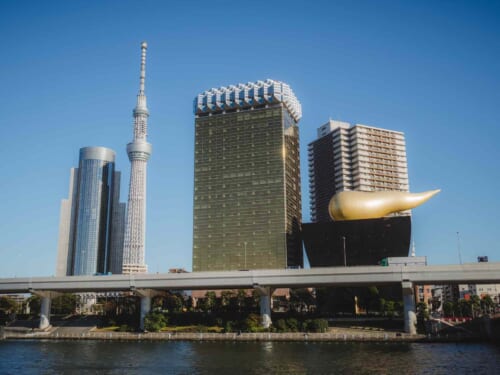

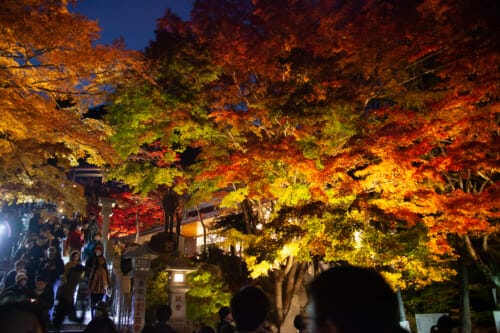

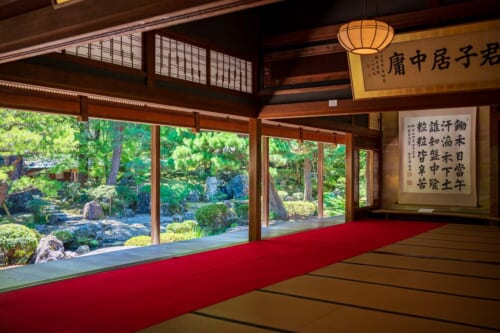
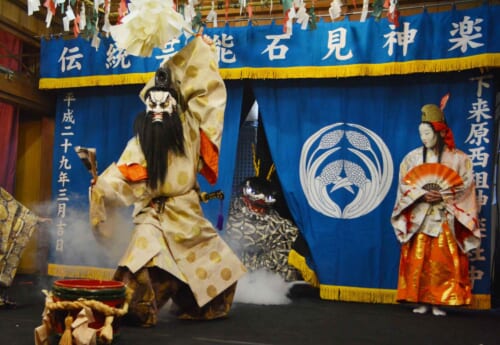
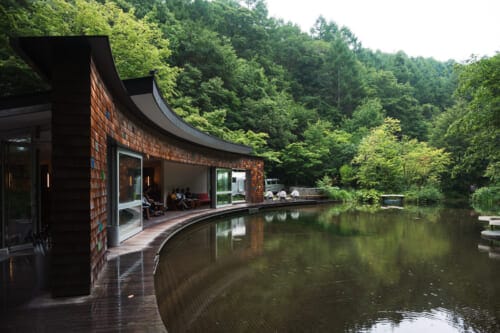
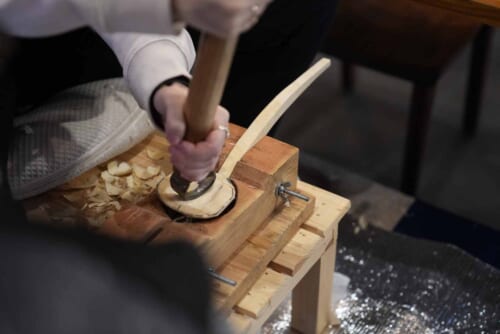
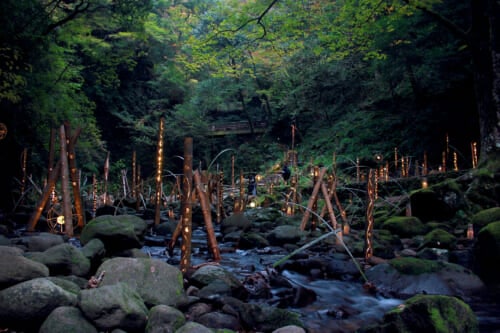


No Comments yet!